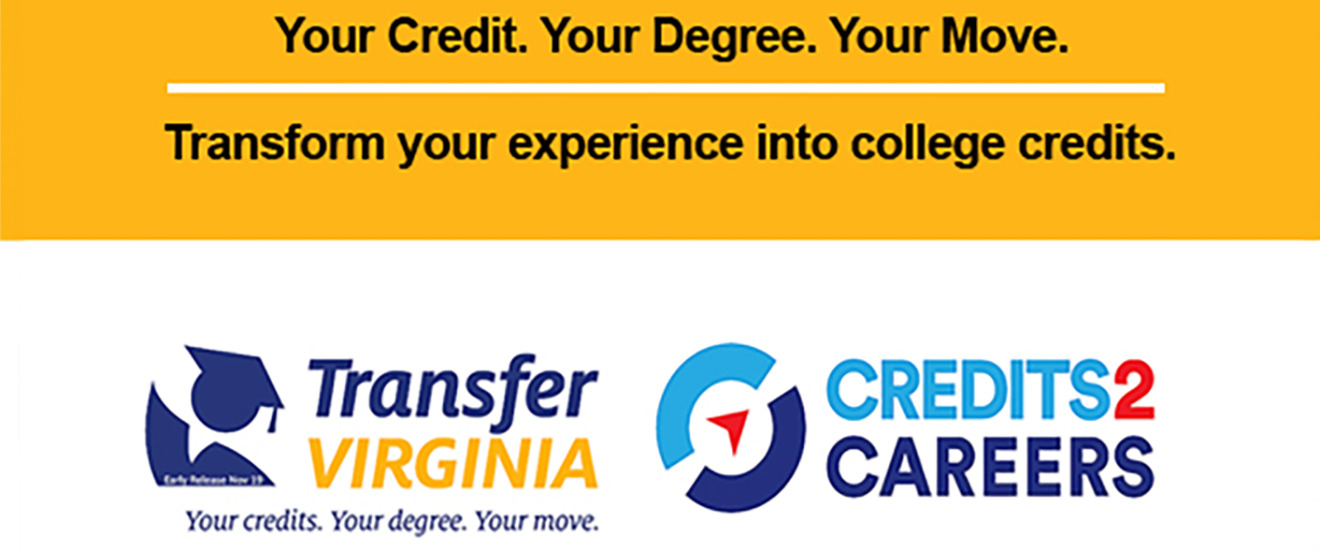Transfer Portals
Transfer Virginia
Transfer Virginia provides transparent, accessible, consistent, and current information to students throughout the college selection, enrollment, and transfer process. You can research, plan, and organize your college and transfer journey using the information and resources available within the Transfer Virginia portal from Virginia’s participating institutions.
For more information please contact: support@transfervirginia.org
Credits2Careers
Credits2Careers is a resource for adult learners, veterans, students exploring career options. Inside the Credits2Careers portal, you can enter information about your passion areas, aspirations and geographic preferences that will help guide you toward a career path.
For more information please contact: support@credit2careers.org
